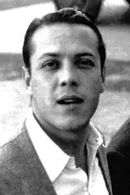Carlos Hugo Christensen is considered one of the most prolific filmmakers in Latin American history, born in Santiago del Estero, Argentina in 1914. A pioneer in the film industry, his love of literature combined with a forward-thinking attitude towards sexuality, resulted in a unique point of view which infused Argentine cinema of the forties and fifties with his trademark touch of audacity and veiled eroticism.
Christensen's films, such as "SAFO, Historia De Una Pasión" (1943),"El Ángel Desnudo" (1946),and "Adan y la Serpiente" (1946),pushed the sexual envelope and sparked much controversy and debate. In 1954, Christensen's anti-Peron sentiments resulted in his political exile from Argentina, where he completed the first Technicolor film ever to be shot there, "Meus Amores No Rio," which was nominated for the Golden Berlin Bear at the Berlin International Film Festival in 1959.
Throughout his seven-decade career, Christensen completed 55 films, most of them comedies, melodramas, or film noir, which he wrote, directed, and produced. His films have garnered numerous awards, including Best Director and Best Film prizes, in countless festivals and award ceremonies throughout the world.
In addition to his film work, Christensen was also an accomplished poet, publishing his first volume of poetry "El Libro del Primer Amor" at the tender age of 18. He continued to write poetry throughout his life, and his final book of poetry "Poemas Para Os Amigos" was published shortly before his death in 1999.



















